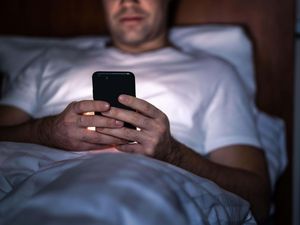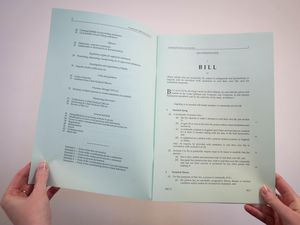Screen time before bed linked to poorer sleep in adults – study
And the problem is worse for night owls.

Adults who use a mobile phone or tablet directly before going to bed are less likely to get a good night’s rest, according to a study.
Daily screen time before bed leads to poorer quality sleep and reduced sleep time, academics found.
Researchers, led by experts from the American Cancer Society, said their findings show that disruptions to sleep linked to screens do not just affect children and teenagers.
The research team gathered data on sleeping habits and screen use – not including the television – in the hour before sleep from more than 122,000 people from the US and Puerto Rico.
Around 41% of people who took part in the study reported daily screen use before bed while 17% reported no screen use.
Some 58% were thought to be so-called morning larks – also known as morning chronotypes, who have the innate inclination to be more active earlier in the day.
Compared with people who did not use phones or tablets before bed, people who reported daily use were 33% more likely to report having poor sleep quality.
People who reported that they used a screen before bed each day were also more likely to go to bed later, according to the study, which has been published in the journal JAMA Network Open.
Overall, people who used screens before bed each day had 48 minutes less sleep every week.
The light from the screens may play a part, the authors suggested.
“Light exposure at night can disrupt sleep by disrupting this natural cycle through delaying the onset of melatonin,” they wrote.
“This can lead to reduced sleepiness and increased alertness.”
But they said that disruptions to sleep due to screen use “may not be limited to effects of screen light,” adding: “It is not only the light being emitted from these devices that needs to be considered, but the content as well.”
They said that social media is one of the major sources of content being consumed on mobile devices but “only a handful of studies have looked at social media use at bedtime”.
Associations between screen time and poor sleep appeared to be more pronounced among night owls – or people categorised as evening chronotypes, who are more active later in the day.
The researchers said night owls are already at risk of poor sleep due to “social jetlag” or the “misalignment between circadian rhythms and social commitments”, meaning that night owls would prefer to sleep in later but cannot because of work or school.
The team found that morning larks who used a screen before bed went to bed 9.33 minutes later on workdays compared with those who kept screens out of the bedroom.
And night owls went to bed 15.62 minutes later on workdays. Results were similar for non-workdays.
The authors concluded: “Our findings strengthen the evidence that electronic screen use and disruptions to sleep duration and quality are not limited to children and adolescents but to the broader adult population as well.
“The decrease in quality and duration appeared to be greater among those with a later chronotype and may be due to delayed bedtimes.
“Continued work is needed to understand the mechanisms through which screen use disturbs sleep (eg, artificial light at night vs content), especially among individuals with later chronotypes who are already at increased risk of poor sleep due to work and social commitments necessitating earlier wake times.”





